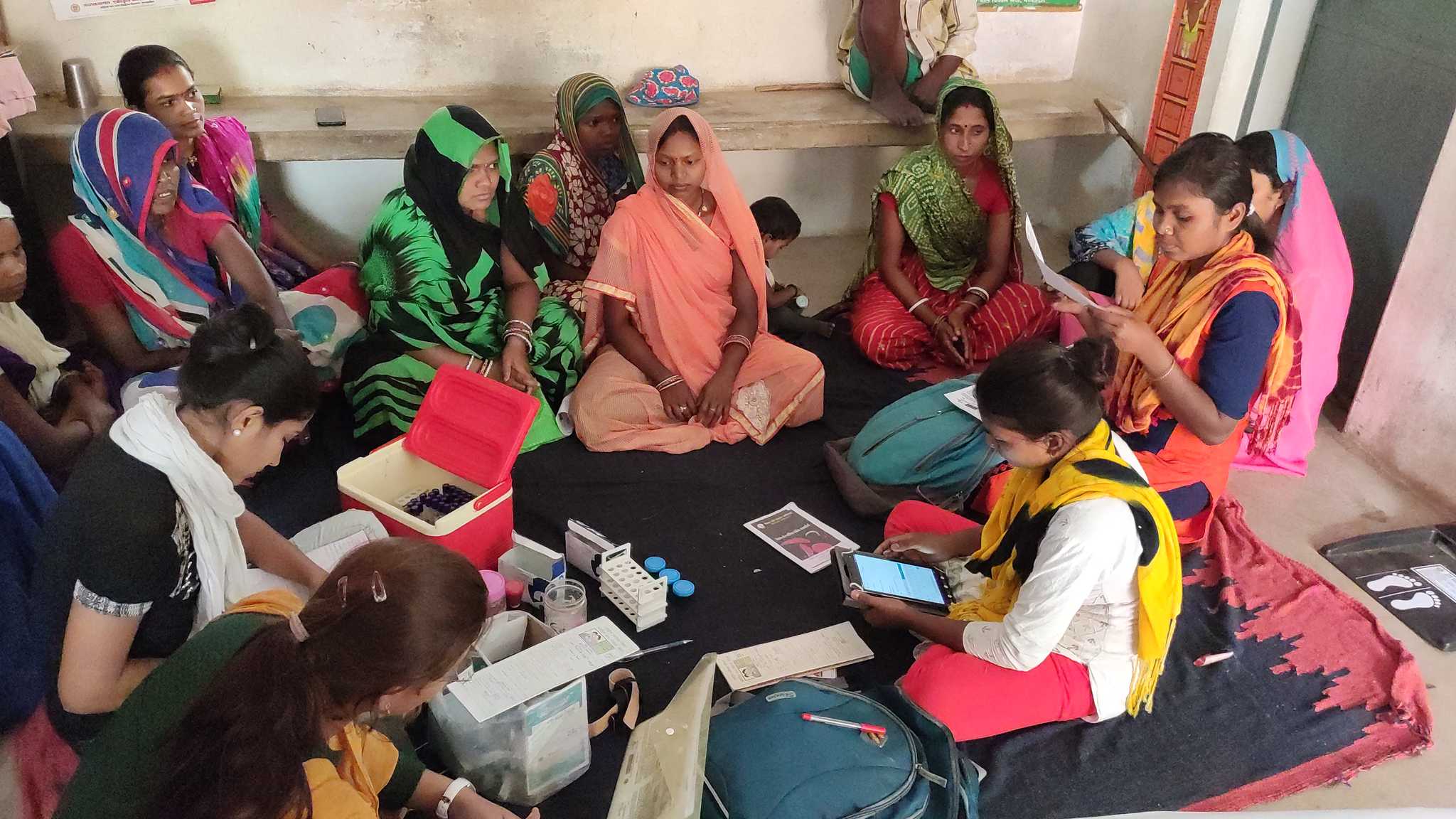Avni for sickle cell disease screening and treatment
Last updated on: January 06, 2020 by
Sickle cell disease (common type being sickle cell anaemia) affects a huge percentage of tribal population in India because of its genetic/hereditary nature. A person can simply be a carrier which is harmless to oneself. But when a child is born from two parents who are both carriers then the child gets this disease. The effects of the disease are severe and more can be read about it here (https://en.wikipedia.org/wiki/Sickle_cell_disease). The carriers are anywhere between 10-20% in many tribal populations. The public health imperative is to reduce the number of couples where both parents are carriers and treat those who have the disease. There is no prevention.
Jan Swasthya Sahyog is working in collaboration with M.P. state government in Annupur district which has a high tribal population. The goal of the first phase of the project is to screen all members of tribal families which has a pregnant woman. Anyone found with sickle cell disease is provided treatment*. The broad activities involved are:
- Register pregnant women at their home
- Collect their blood sample and send them for tests to the partner lab
- In the lab perform the tests
- Register and similarly test rest of family members if the woman is found to have the disease
- Start treatment for woman and other family members if they are also found with the disease
- Follow up on the treatment regularly
It is important to note that these activities are happening in parallel for many people across the district, in the village, lab and clinic. 11000 such families and 25000 total individuals were screened as part of this project. This was done by a team of 19 people, working with the ANMs in the district. Managing all these distributed activities, in parallel is a really difficult job because there are dozens of points at which the ball can get dropped. e.g. The sample could be sent to the lab, but the lab misplaces it. Or the test is done but the result is never looked at.
Avni field app was used by the entire team to manage all their client's data while they are in the village, lab or clinic. This allowed them to coordinate their efforts amongst each other. Avni field dashboard provided the users with visibility into scheduled/pending activities which is key to ensuring that the end to end steps are completed for each person who is registered into the system. The picture below where ANM is tagging samples and data entry person adding the same to Avni. "The ability to see what work is pending by the lab/clinic/in-village helped reduce the stress of the field team and made them productive" - paraphrasing the words of program lead.

You can get a quick preview of how Avni provides the support for managing one's work via a dashboard, scheduling of visits and performing these scheduled visits. This program now is being designed for scale-up to extend services to all tribals not just to families with pregnant woman - including extending it to other tribal districts in MP.
*Apart from these JSS is working with doctors and lab technicians to improve diagnosis, and with state government to improve blood availability required for blood transfusion in SCD. It also includes awareness among patients about their right to treatments via creating of patient support groups.